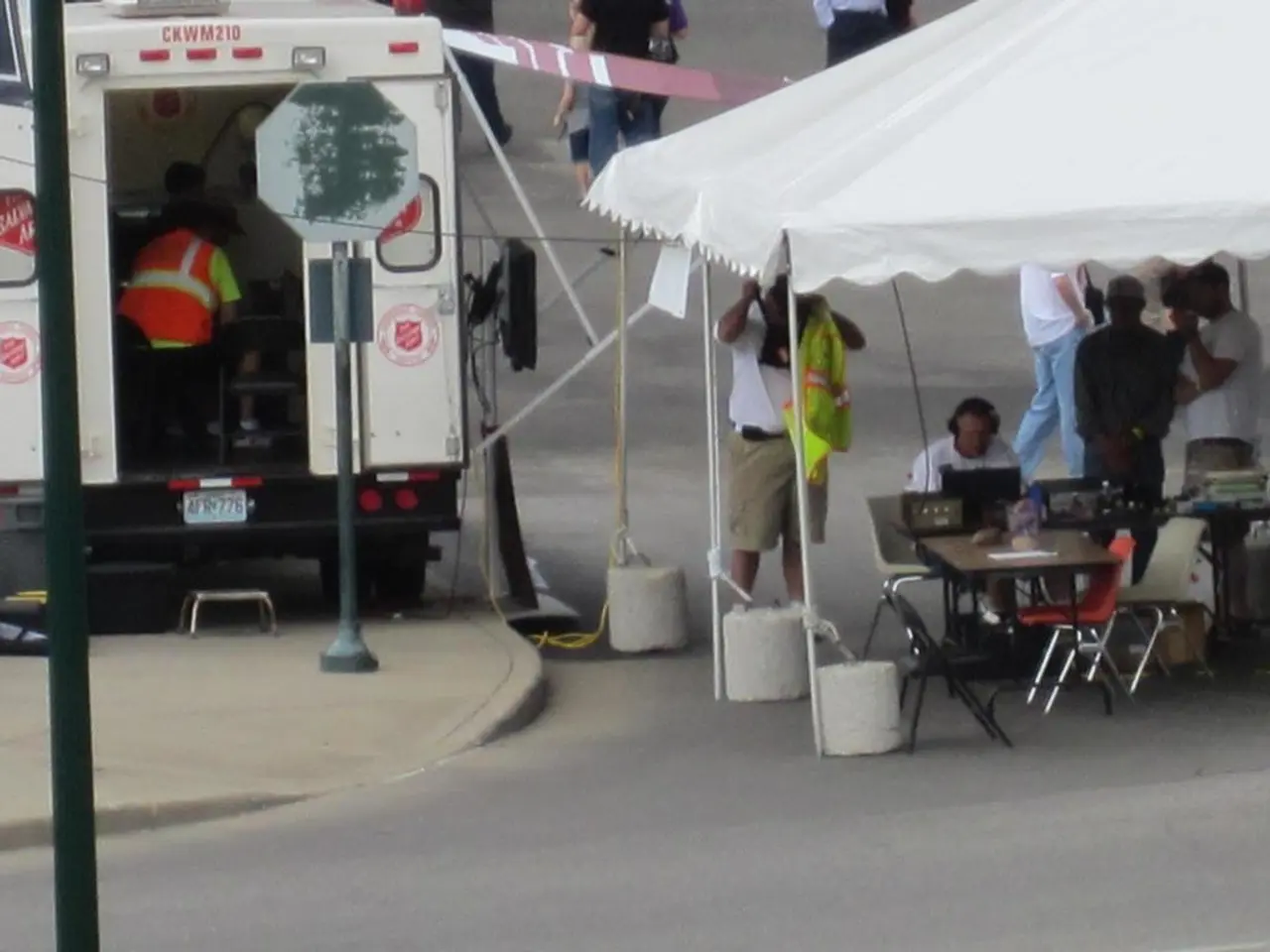Almaty volunteers offering assistance during the pandemic crisis
In the heart of Kazakhstan, the city of Almaty witnessed an extraordinary display of community spirit during the COVID-19 pandemic. Volunteer organizations, working tirelessly, played a significant role in supporting the city's residents, particularly the vulnerable populations.
These organisations engaged in a variety of activities, from community support and youth empowerment to addressing social vulnerabilities. They provided aid to those in need, supported health and well-being initiatives, and facilitated community-based projects that enhanced resilience during the crisis.
Among these organisations, those affiliated with educational institutions like Almaty Management University (AlmaU) stood out. AlmaU volunteers supported compatriots at international events such as the 2023 Special Olympics, reflecting their ongoing commitment to social inclusion and community aid.
Their efforts were not limited to social support alone. Volunteer organisations contributed to the socio-economic response through multi-sectoral, community-driven projects that focus on the most vulnerable groups. Inspired by approaches such as the human security framework used in regional UN programs, these projects aimed to mitigate insecurities amplified by the pandemic.
The pandemic highlighted the importance of collaborative efforts between volunteers, public organisations, and government bodies in Almaty. These efforts often involved education, cultural heritage preservation, and sustainable development activities adapted to pandemic constraints, consistent with initiatives by UNESCO in Central Asia.
During the state of emergency, volunteer medics assisted in city quarantine and provisional hospitals, conducted explanatory work on quarantine, and helped take PCR tests for COVID-19. LIDER.KZ volunteers delivered approximately 4,000 food sets to needy families in the Almaty region, also providing free medication.
Various volunteer organisations in Almaty worked together, assisting state bodies and providing comprehensive support to Almaty residents. The public association "Almaty Kind Hearts Club" delivered 1,200 food baskets to low-income and large families in the city and nearby villages since the start of the quarantine until now.
The "Who, if not I" kindness campaign, supported by over 15 volunteer organisations, covered 14 cities in Kazakhstan, providing food kits to over 5,000 low-income city residents during the declared quarantine. The "Almaty Kind Hearts Club" also provided assistance to 310 elderly people in nursing homes at high risk, including the Veterans' House, the Nur Nursing Home, and the Sobor nursing home.
These organisations have a combined database of over 50,000 volunteers. Despite the scarcity of specific quantitative impact data for Almaty volunteers during the pandemic in current sources, these qualitative insights highlight their essential, diverse roles in mitigating pandemic effects on local communities.
In a statement, Bagdat Anarbayeva, the chairperson of the Almaty branch of the NGO "League of Volunteers of Kazakhstan", acknowledged the city-wide involvement in good deeds during the pandemic, from students to the elderly, youth organisations, and NGOs.
Charitable and volunteer organisations, city sponsors, patrons, and entrepreneurs provided assistance to over 80,000 needy people, totaling 1.9 billion tenge during the pandemic. Volunteers maintained remote communication and regularly delivered necessary products and medicines during the strict quarantine in Almaty. During the strict quarantine, volunteers monitored 80 infection hotspots in Almaty.
In conclusion, the volunteer organisations in Almaty demonstrated resilience and dedication during the COVID-19 pandemic. Their efforts significantly contributed to the city's response, supporting vulnerable populations' health and social needs, engaging youth in community initiatives and empowerment programs, and collaborating with educational institutions for social inclusion and event support. These organisations' bottom-up, multi-sectoral projects built community resilience, underscoring the power of collective action during challenging times.
Home-and-garden volunteer organizations in Almaty, inspired by the human security framework used in regional UN programs, implemented sustainable living projects aimed at mitigating insecurities exacerbated by the pandemic. These initiatives promoted a lifestyle that was not just focused on personal needs but also contributed to the overall well-being and resilience of the community.
In line with UNESCO's initiatives in Central Asia, these volunteer groups also focused on education, cultural heritage preservation, and fostering an environmentally-friendly lifestyle within their community-based projects. This holistic approach to sustainable living demonstrates the volunteers' commitment to long-term community development during challenging times.





